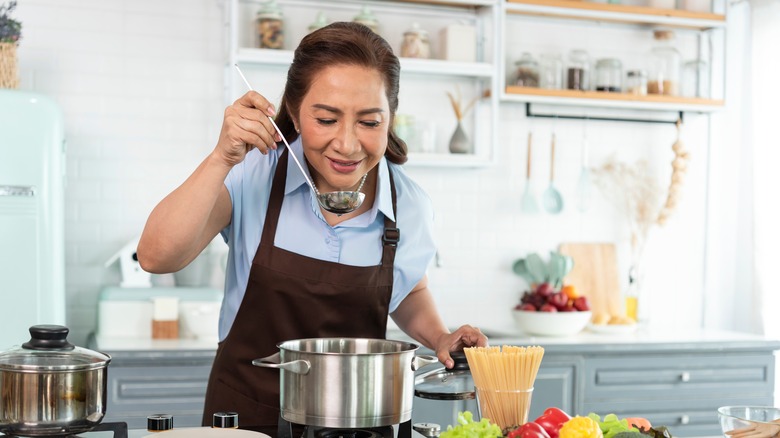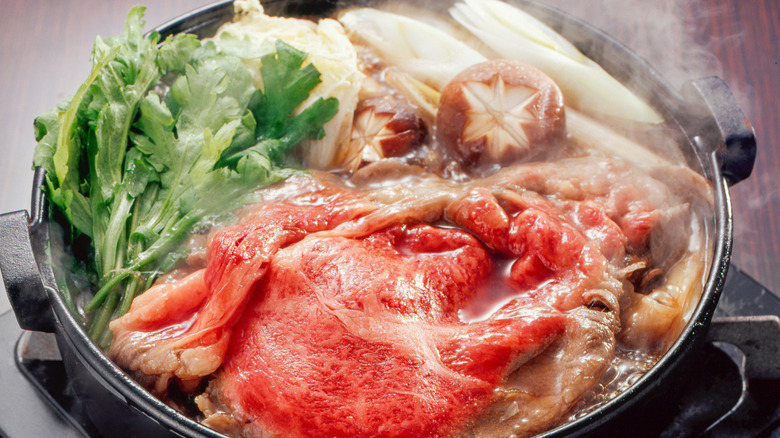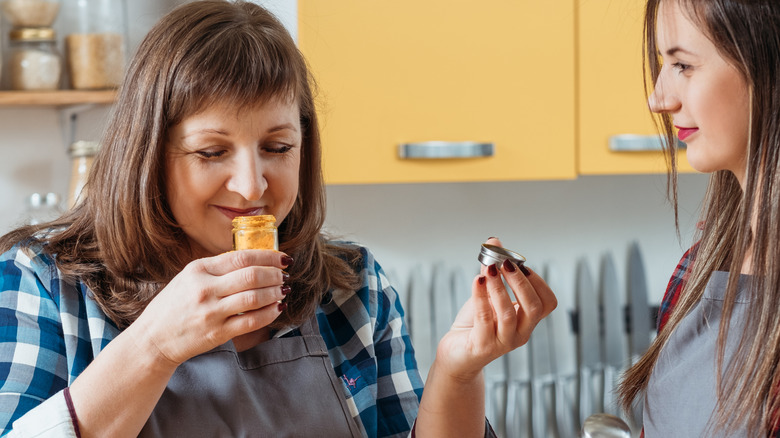What's Really Happening When Your House Fills With Cooking Smells
There are fewer things that can warm a heart and home better than the smells that emanate from the kitchen, like the sweet and warm scent of freshly baked cookies or bread wafting through the corridors. And who isn't infatuated with the savory and saliva-inducing scent of freshly chopped garlic and aromatic onions sizzling in a shallow pool of olive oil? For many, smelling a familiar scent can transport one back to another time and place, and everyone has their own version of Proust's madeleine.
Smells are so powerful that they can create a direct wire to relive even the oldest memories, due to the brain anatomy that makes scent and memory closely linked. For cooking in particular, however, some of the scents can linger and sour in a house the next day, which can create a negative memory association that can also be retriggered. If you've experienced this, there is actually a scientific reason why the smell of certain foods can stretch beyond the kitchen and into the next day.
Volatile cooking smells
When the scent of a long-simmering broth fills a house, that is because there are actual flavor molecules that have evaporated from the food and are floating around the halls of your home. These so-called flavor molecules are light and small, which makes them volatile and ready to take flight from food and into the air, especially when exposed to higher temperatures.
Different foods have different volatile flavor molecules: butter, for example, has diacetyl, which was also once popularly used in artificial butter flavoring, though has since been phased out because it was linked to lung disease amongst microwave popcorn factory workers.
Isoamyl acetate is what makes banana bread smell so good, menthol is responsible for the scent of a mint tea, and cinnamaldehyde is what makes cinnamon rolls sing of spice and goodness. And these flavor molecules don't just remain within the food; their volatile nature means that once food is cooked or transformed in some way, so does the flavor.
The cooking method matters
Volatile molecules are named so for good reason: They react very differently to the slightest change in environment or treatment. When cooking curries, there are several factors that could make the smell more pungent or change in some way. First, toasting whole spices changes the flavor molecule composition — ginger heated will produce zingerone, which is sweeter.
Even grinding spices causes flavor evaporation, which is why the smell of freshly ground pepper is so strong. The trade-off for the smell is that the flavor has left the dish, which is why it's sometimes recommended to add spice mixes at the end of the cooking process rather than at the beginning.
The amount of heat applied also impacts the flavor molecules. One report from Food Science and Technology found that roasting rice at different levels resulted in many different flavor compounds and smells, which must be why dishes like risotto call for toasting the rice prior to adding liquid.
Cooking smells can be contained by using a lid, but then you won't get the pleasant smells filling the house. The downside of the olfactory sensation is that lingering scents can be unpleasant the next day, so you'll want to know how to get rid of any bad kitchen smells.


